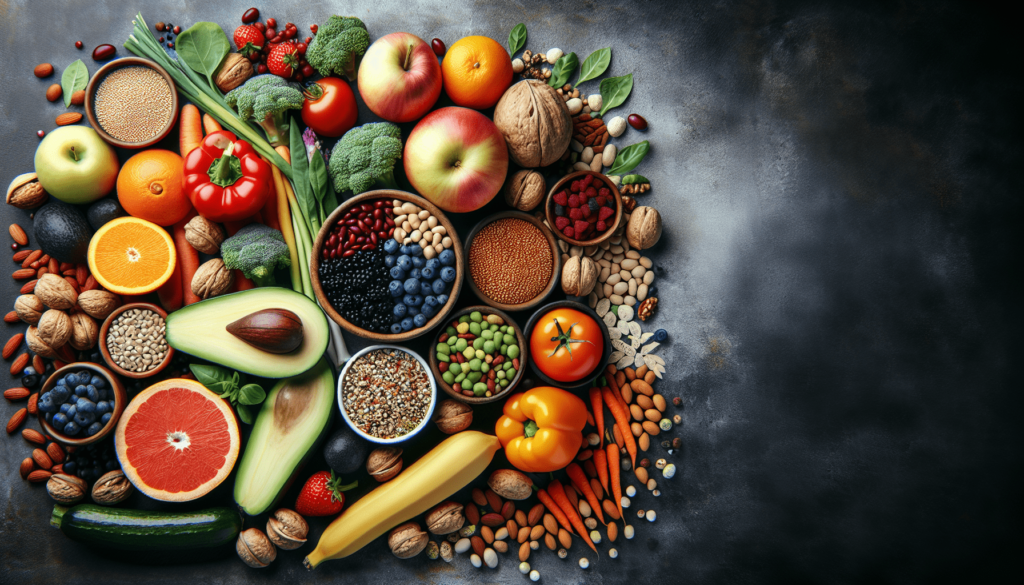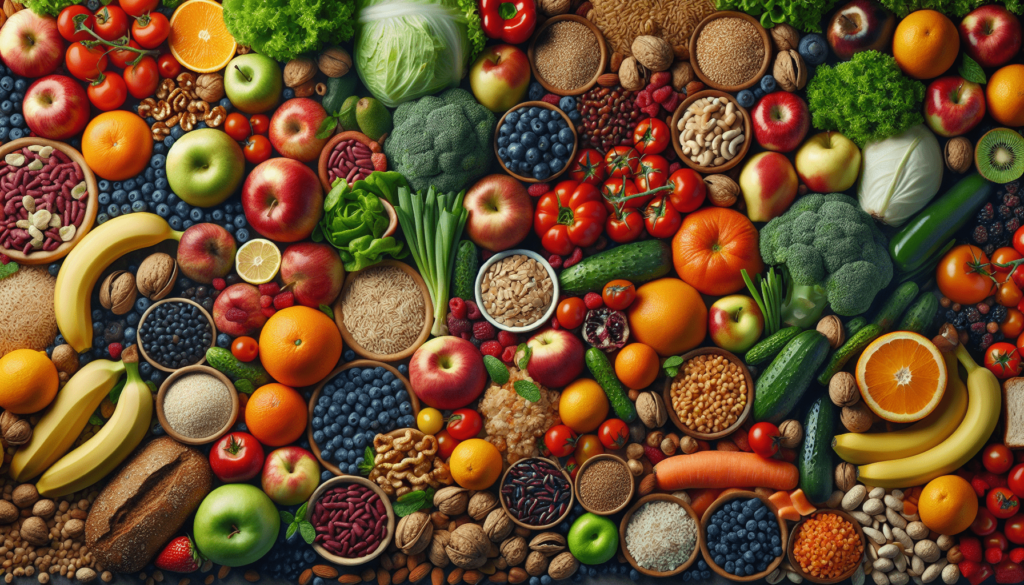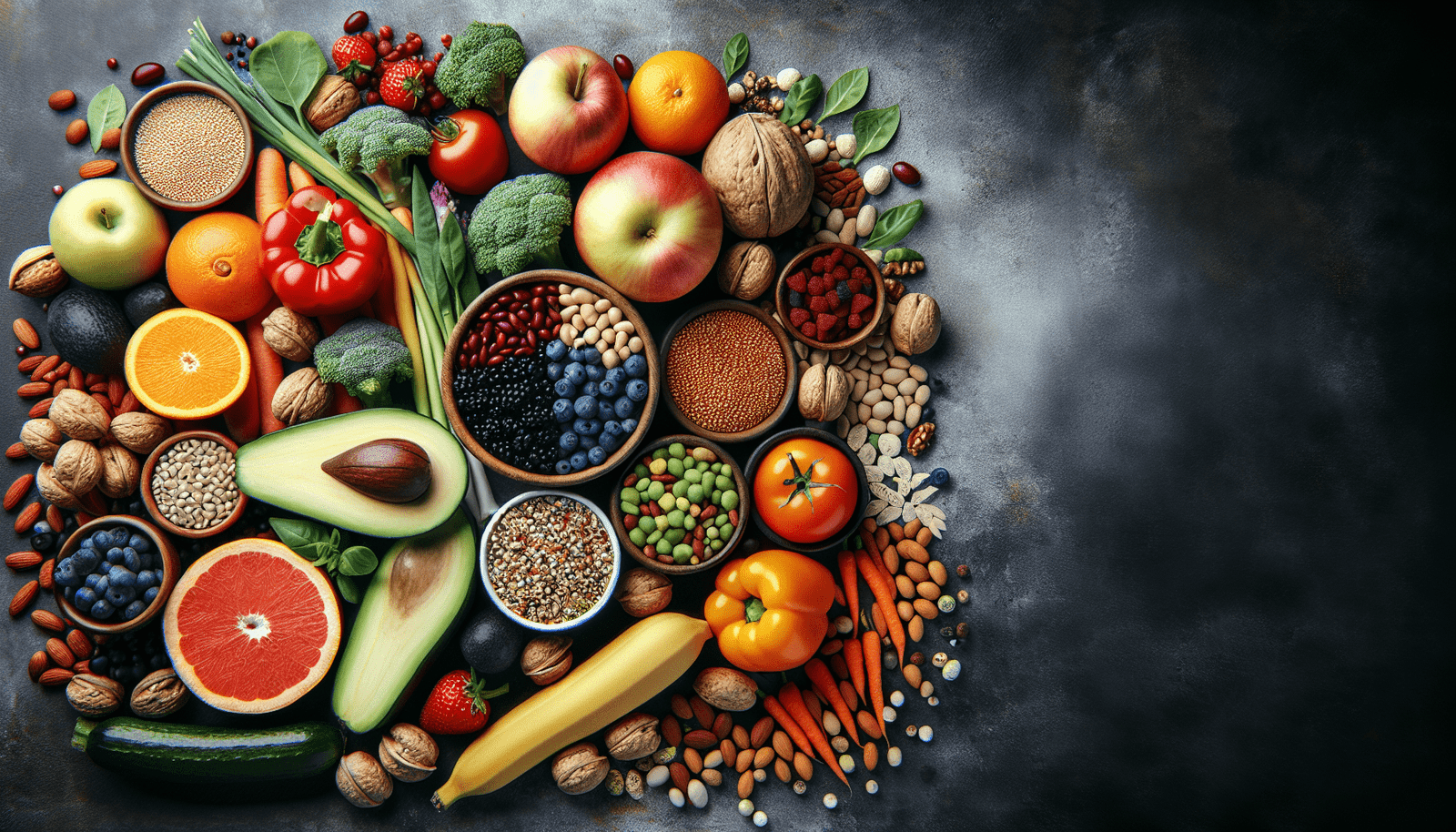Hello there! Are you looking to make the switch to a vegetarian diet but not sure where to start? In this article, you will learn how to create a balanced vegetarian meal plan that includes all the nutrients your body needs to thrive. From incorporating a variety of fruits and vegetables to ensuring you are getting enough protein and iron, we’ve got you covered. Say goodbye to any doubts or worries and get ready to embrace a delicious and nutritious vegetarian lifestyle! Have you ever wondered how to create a balanced vegetarian meal plan that provides all the necessary nutrients your body needs? Whether you are a seasoned vegetarian or looking to incorporate more plant-based meals into your diet, creating a well-rounded and nutritious meal plan is key to maintaining optimal health and energy levels. In this article, we will guide you through the process of creating a balanced vegetarian meal plan that is both delicious and satisfying. So let’s get started!
Understanding the Basics of a Balanced Vegetarian Meal Plan
Creating a balanced vegetarian meal plan involves selecting a variety of plant-based foods that provide essential nutrients such as protein, vitamins, minerals, and fiber. It’s important to include a diverse range of fruits, vegetables, whole grains, legumes, nuts, and seeds to ensure that you are meeting your nutritional needs. By incorporating a variety of plant-based foods into your meals, you can enjoy a wide range of flavors and textures while reaping the health benefits of a vegetarian diet.
Why is a balanced vegetarian meal plan important?
A balanced vegetarian meal plan is essential for overall health and well-being as it ensures that you are getting all the essential nutrients your body needs to function properly. By including a variety of plant-based foods in your diet, you can prevent nutrient deficiencies and reduce the risk of chronic diseases such as heart disease, diabetes, and certain types of cancer. Additionally, a balanced vegetarian meal plan can help you maintain a healthy weight, boost your energy levels, and support a strong immune system.
Building a Balanced Vegetarian Meal Plan
When creating a balanced vegetarian meal plan, it’s important to include a variety of foods from different food groups to ensure that you are getting a wide range of nutrients. Here’s a breakdown of the key components you should include in your meal plan:
Protein
Protein is essential for building and repairing tissues, supporting immune function, and maintaining muscle mass. While many people associate protein with animal products, there are plenty of plant-based sources of protein that can easily be incorporated into a vegetarian meal plan. Some excellent sources of vegetarian protein include:
- Legumes (such as lentils, chickpeas, and black beans)
- Tofu and tempeh
- Quinoa
- Nuts and seeds
- Whole grains (such as brown rice, oats, and barley)
Including a variety of protein-rich foods in your meals will ensure that you are getting an adequate amount of protein to support your overall health.
Fruits and Vegetables
Fruits and vegetables are rich in essential vitamins, minerals, and antioxidants that help protect your body against disease and support overall health. Aim to include a wide variety of colorful fruits and vegetables in your meals to ensure that you are getting a diverse range of nutrients. Some tips for incorporating fruits and vegetables into your vegetarian meal plan include:
- Fill half your plate with fruits and vegetables at every meal
- Experiment with different cooking methods, such as roasting, steaming, and sautéing
- Include a variety of fruits and vegetables in different colors to ensure a wide range of nutrients
Whole Grains
Whole grains are an excellent source of complex carbohydrates, fiber, and essential nutrients such as B vitamins and iron. Including whole grains in your vegetarian meal plan can help you feel full and satisfied while providing a steady source of energy throughout the day. Some healthy whole grains to include in your meals include:
- Brown rice
- Quinoa
- Barley
- Whole wheat pasta
- Oats
Healthy Fats
Healthy fats are important for overall health, as they help support brain function, hormone production, and nutrient absorption. While it’s important to limit saturated and trans fats, including sources of healthy fats in your vegetarian meal plan is essential. Some sources of healthy fats include:
- Avocado
- Nuts and seeds
- Olive oil
- Coconut oil
- Flaxseeds
Dairy or Dairy Alternatives
If you choose to include dairy in your vegetarian meal plan, opt for low-fat or non-fat options to reduce saturated fat intake. Alternatively, you can choose dairy alternatives such as almond milk, soy milk, or coconut yogurt to meet your calcium and vitamin D needs. Including dairy or dairy alternatives in your meal plan can help you meet your nutrient requirements and support bone health.
Snacks and Desserts
Snacks and desserts can be a fun and satisfying way to incorporate additional nutrients into your vegetarian meal plan. Some healthy snack and dessert options include:
- Fresh fruit with nut butter
- Greek yogurt with honey and berries
- Homemade trail mix with nuts, seeds, and dried fruit
- Baked sweet potato fries with a side of hummus
- Chia seed pudding with almond milk and fresh fruit
Hydration
Staying hydrated is essential for overall health, as it helps regulate body temperature, transport nutrients, and eliminate waste products from the body. Aim to drink at least 8-10 cups of water per day, and include hydrating foods such as fruits and vegetables in your vegetarian meal plan. Herbal teas, coconut water, and infused water are also excellent options for staying hydrated throughout the day.

Sample Balanced Vegetarian Meal Plan
To give you an idea of how to create a balanced vegetarian meal plan, here is a sample meal plan for one day:
Breakfast
- Oatmeal topped with fresh berries, sliced almonds, and a drizzle of honey
- 1 cup of almond milk
- Green tea
Snack
- Greek yogurt with sliced peaches
- Handful of mixed nuts
Lunch
- Quinoa salad with cherry tomatoes, cucumbers, red onion, and feta cheese
- Mixed greens with balsamic vinaigrette
- Fresh fruit salad
Snack
- Hummus with carrot and celery sticks
Dinner
- Grilled tofu with stir-fried vegetables and brown rice
- Steamed broccoli with a sprinkle of nutritional yeast
- Mixed berry crumble with a dollop of coconut yogurt
Snack
- Air-popped popcorn with a sprinkle of sea salt
By following a sample meal plan like this, you can ensure that you are getting a wide range of nutrients throughout the day while enjoying delicious and satisfying meals.
Tips for Success
Creating a balanced vegetarian meal plan may seem overwhelming at first, but with a little planning and creativity, you can easily incorporate a variety of plant-based foods into your diet. Here are some tips to help you successfully build a balanced vegetarian meal plan:
Plan Ahead
Take some time at the beginning of each week to plan your meals and snacks for the upcoming days. By creating a shopping list and preparing some meals in advance, you can save time and ensure that you have healthy options on hand.
Experiment with New Recipes
Don’t be afraid to try new ingredients and recipes when creating your vegetarian meal plan. Explore different cuisines, cooking methods, and flavor combinations to keep your meals interesting and delicious.
Include a Variety of Foods
To ensure that you are getting all the essential nutrients your body needs, aim to include a diverse range of plant-based foods in your meals. Mix and match different fruits, vegetables, grains, legumes, nuts, and seeds to create well-rounded and satisfying dishes.
Listen to Your Body
Pay attention to your hunger and fullness cues to help guide your meal planning. Eat when you are hungry and stop when you are satisfied, and be mindful of how different foods make you feel to optimize your health and well-being.
Seek Support
If you’re new to vegetarian eating or feeling unsure about creating a balanced meal plan, consider seeking support from a registered dietitian or nutritionist. They can help you create a personalized meal plan that meets your individual needs and goals.

Final Thoughts
Creating a balanced vegetarian meal plan is a simple and enjoyable way to support your health, boost your energy levels, and explore a wide variety of plant-based foods. By including a diverse range of fruits, vegetables, whole grains, legumes, nuts, and seeds in your meals, you can ensure that you are getting all the essential nutrients your body needs to thrive. So get creative, plan ahead, and enjoy the journey of creating a delicious and nutritious vegetarian meal plan that works for you. Cheers to your health and happiness!

